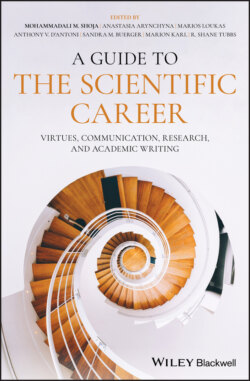Читать книгу A Guide to the Scientific Career - Группа авторов - Страница 120
11.2 The Importance of EQ in Academia and on the Job
ОглавлениеThe idea of EQ grew substantially in popularity with the publication of Daniel Goleman's 1995 book Emotional Intelligence: Why It Can Matter More than IQ. Goleman expanded upon the ideas presented by Salovey and Mayer and brought them to a wider audience. His ideas are represented by broader definitions and notably by the applicability of the “soft skills” in the classroom and the workplace. The idea that the ability‐based model of EQ is applicable and scientifically valid has been widely accepted in the popular press, academic psychological field, and in the field of organizational behavior (Daus and Ashkanasy 2005).
Various publications have shown that EQ constitutes a significant, and at times even a majority, predictor of success in the workplace (Goleman 1995; Davis 2004). While this appears to be true at all levels of careers, EQ seems to play an even greater role at higher levels, e.g. in leadership positions.
Interestingly, some studies have indicated that EQ may be less important in the more technical fields (e.g. in the sciences). Some have even suggested that EQ may be a liability (Grant 2014). However, while technical positions may be less focused on these skills initially, movement to higher levels in the workplace, including management, requires development of these skills. Further, patient‐physician interaction in medicine and communication of results in research (all vital parts of the career of a medical student, clinician, or scientist) rely heavily on the skills discussed in this chapter.
